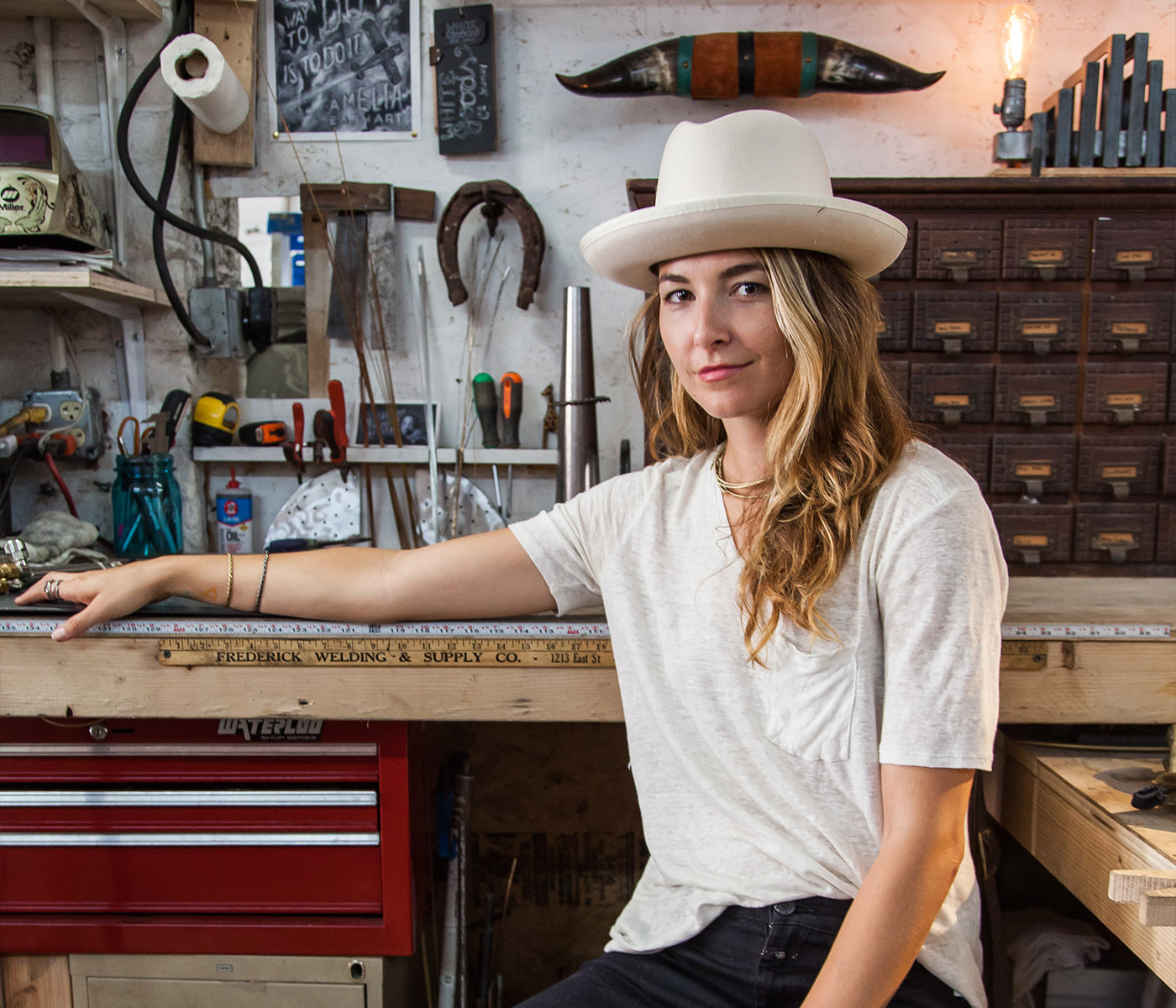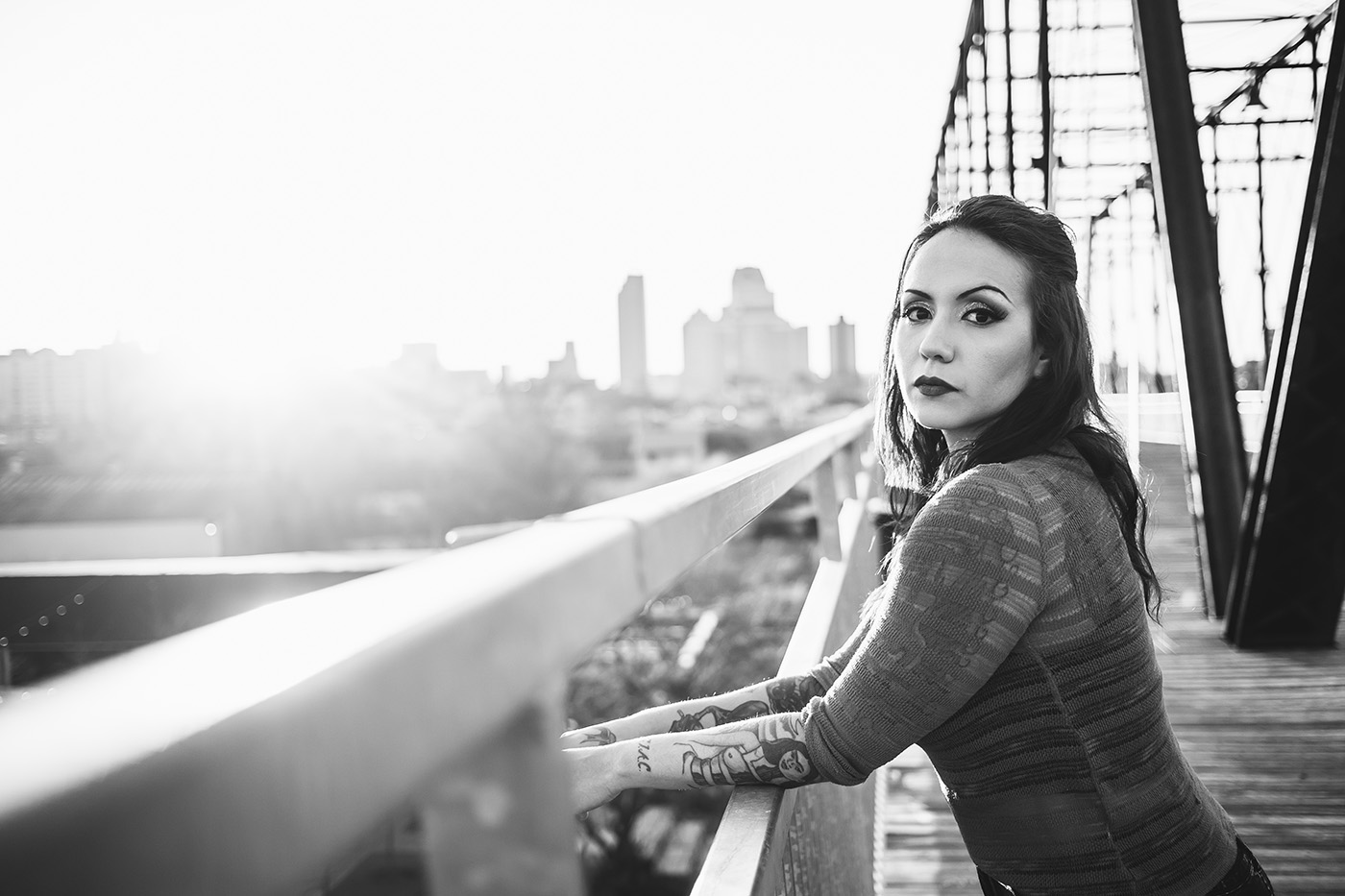LORENA JUNCO | ON THE WAY TO CASA LOTUS | A CALL FOR FORGIVENESS

Lorena Junco Margain, is a Mexican author, art collector, philanthropist, wife and mother of three children who surprised readers with the publication of her first book «On the Way to Casa Lotus». That is a USA Today and Wall Street Journal bestselling memoir.
On the way to Casa Lotus is an honest and moving story of the process Lorena Junco Margain had to undergo to come to terms with the permanent consequences of a surgeon’s devastating mistake while she was undergoing surgery.
LORENA JUNCO
Author Lorena Junco was born and raised in Monterrey and Mexico City. She studied Visual Arts at the University of Monterrey, and co-founded the gallery Distrito14 as a platform to showcase emerging Mexican artists. Subsequently she co-founded the Margain-Junco Collection alongside her husband, Eduardo Margain, to support emerging artists, foster the art scene in Mexico and promote awareness of Mexican Art internationally.
MEXICO – AUSTIN.
In 2008, Lorena Junco Margain was forced to leave Mexico with her husband, children, parents and pregnant with her third child, for her family’s safety , coming to Austin, Texas. Why Austin? Her father had gone to college there and she was familiar with the city as they often had visited.
Some time later, after the birth of her son and after having experienced unexplained symptoms of dizziness and lethargy for a long time, her doctors examined her and found that she had a tumor in her adrenal gland.
Relieved to know there was a solution and introduced to a specialist, she underwent a “simple” surgery to remove the tumor in her adrenal gland.
However, fate played a trick on her. Instead of getting better after the operation, her condition worsened and was discovered to be a mistake by the surgeon. He removed the healthy adrenal gland and left the one with a tumor inside her.
DECISION NOT TO SEEK A JUDGMENT
Lorena describes a series of mixed feelings fluctuating between despair, guilt, anger and pain, along with humility. A lawsuit followed, and after several years of suffering and much thought, she decided not to sue the doctor.
She realized that her pursuit of a remedy for malpractice through the courts had taken on the nature of a mercantile transaction and would not bring any change in the medical practice and hospital system.
Instead, she begins a process of forgiveness. And instead of seeking a reckoning with the surgeon, Lorena found the will and courage to write her book. Her motive was to serve a higher purpose: to promote forgiveness as a force for personal and universal change.
I interviewed Lorena Junco while she was on vacation. After an introductory conversation, we decided to do a zoom interview. Seeing her face and her warm smile in the screen, Lorena radiated light, serenity and a certain sense of being at peace with herself. The interview was as interesting as her book. We began with a discussion of the title of the book.
ON THE WAY TO CASA LOTUS
Hi Lorena, it is a pleasure to have you with us, could you tell us something about the title for your book?
The title On the Way to Casa Lotus, is inspired by my admiration for the Vietnamese author Thích Nhất Hạnh, a Buddhist monk and peace activist. His message is inspiring: the secret to happiness is to recognize and transform suffering, not run away from it. In other words, «no mud, no lotus.»
Because, for example, we do not see a lotus being born on marble tile. I feel that my experience reflects just that. I was able to transform all that I have suffered into something beautiful like a flower. The title also refers to my core values.
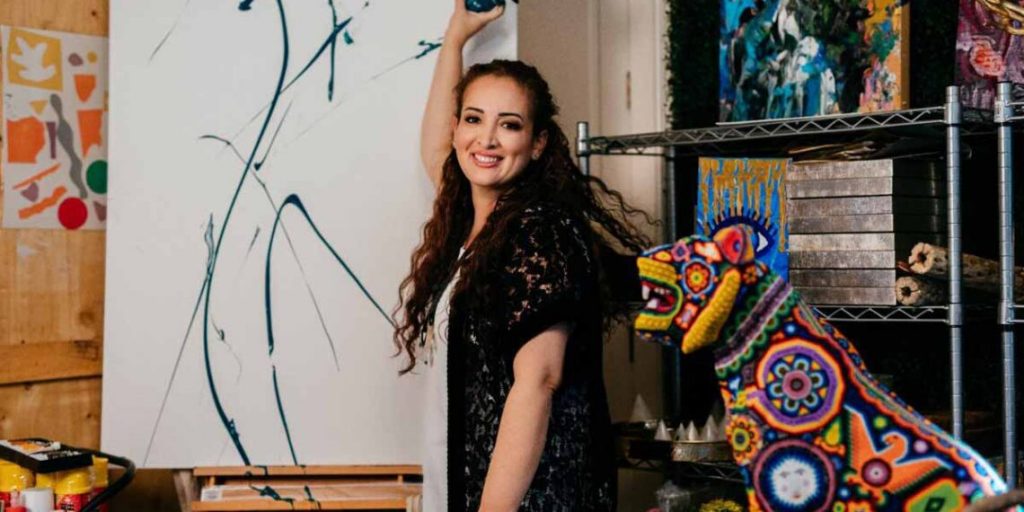
FIRST TIME BOOK AUTHOR
You are a first time author, yet I feel that your book is very rich in detail and very dense, as if you had written before. How long did it take you to write the book?
First of all I want to share with you that I never though I was going to write a book. It was a very long process of almost three years, but I finally did it. But I’ll tell you that writing runs in my family as they are engaged in the media business. They are very much in favor of words.
I come from a family that is part of a very big communication company, and we have always been conscious of reading and writing. Since I was a child I have also had the practice of journaling and that helped me a lot in writing this book.
What was your biggest challenge in writing this book?
I think the biggest challenge was not only to revisit the events, which are painful to remember, however I I did recall them all very clearly, but to put them into an organized form or a chronology of time, or a time-line. Thanks to the help of a very dear friend, I was able to start with the organization of dates, events, and more details. And so I just kept filling in the chapters until the end.
English or Spanish
Once you decided to write the book, in which language did you write first, Spanish or English?
I was conscious in deciding to write it in English, the language of the country where this huge experience happened to me. I think it was necessary for others to know what I experienced here. Although in Mexico there is a stereotype that here in the United States the doctors are the best, and that you would never imagine that a mistake as big as the one that happened to me could occur.
Besides, I am fortunate to have had a very good foundation in the English language because I was educated at the American School of Monterrey from the time I was very young. So my foundation is very solid in English.
I see you are a first time author, but you also have your own publishing house, Cuco Press. Can you tell us a little about it?
Yes, I decided to start my own publishing house, but I confess I underestimated the self-publishing business. But I am happy with the result. We named it «CUCO» Press, because when I was a girl I couldn’t pronounce my last name «Junco» and I used to say «Cuco». So I decided to baptize the publishing house with this name.
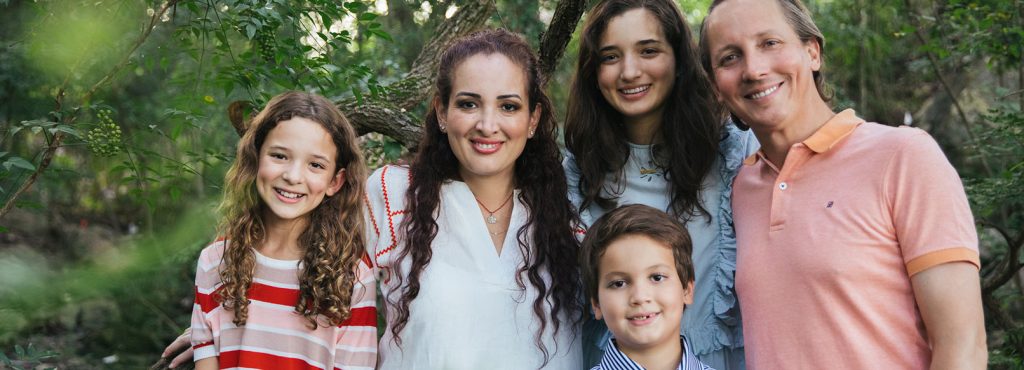
FORGIVING
Was it difficult to remember the details of your experiences to write this book?
Yes, it was difficult, but I had to do it to help me unburden all these emotions. In principle that was my goal, but the result has been of greater impact than I imagined. I realized that it is a tool that may help many others.
For example, I can share with you that at the beginning I didn’t know much about the adrenal glands, and how essential they are in our body. So I started to read intensely and study intensely everything about them, only to realize that there was not as much research as I expected.
The Power of Intention
With this in mind, I made it my goal to help gather even more information for others. And I have donated all of my medical records to the hospital MD Anderson and continue to send them more so that they can continue to conduct and document available studies.
Also, something very nice that we have been able to do is to help pay for the medical studies of a student, who was proudly Mexican, in the specialty of Adrenal Glands. He will also be under the supervision of the female doctor in Houston who practically saved my life.
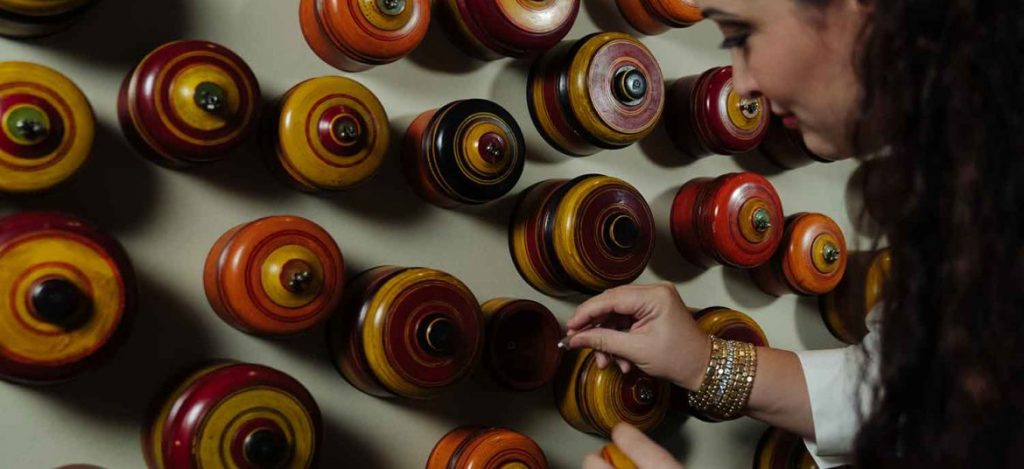
How have the changes been to adapt to your life after the second operation?
Well obviously I am not the same as before. My body has suffered a lot. They were able to save part of my adrenal gland. However, I have to produce what I lack artificially. Therefore, medicines, such as cortisone, I have to take for the rest of my life.
Some medicines have side effects, such as fluid retention, to produce minerals, which is what I need, and as a consequence, it causes swelling and weight gain.
It is especially hard when I cannot share activities with my children because of my physical limitations. Although it has given me a deeper insight in other areas.
Also my right abdomen literally does not work. In fact, I can’t do sit-ups, consequently that part of my body is flabby. So you could say my body has become disfigured in part.
Do you think women are more susceptible to forgiveness than men?
I think forgiveness is like a muscle that you have to exercise. Therefore, both men and women have the same ability for exercising it. I don’t feel there is a difference between the sexes. Emotions are the same.
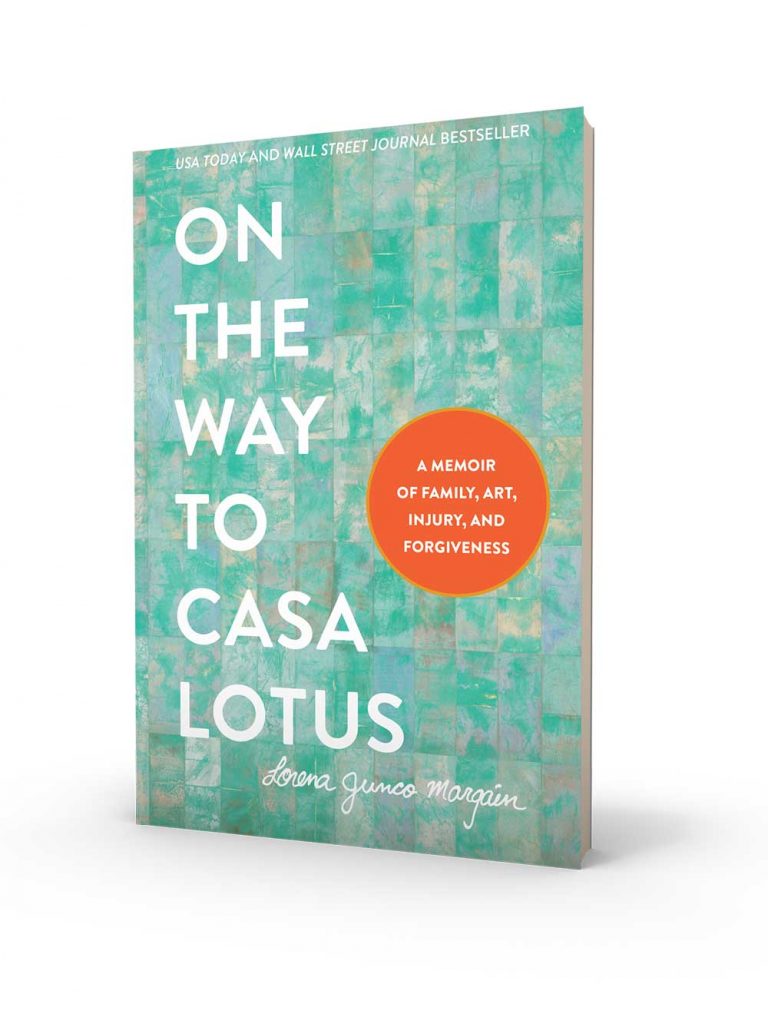
ART
Book cover
Knowing that you are a collector and passionate about art, you have put a special meaning in the cover art of your book, could you tell us a little about that?
I would like to tell you that the cover of my book depicts a sandpaper collage. The cover illustration was designed by Kimberly Glyder. It is actually a large painting that sits in the breakfast area of my home. The artists are Jennifer Allora and Guillermo Calzadilla.
This is the story of over a hundred immigrants who were given a piece of sandpaper when they arrived in the United States for each one to use to sand whatever surface they wanted. Whether it was sanding the wall, the tires of the cars, etc.
The sandpaper was kept in a bag, others folded it in squares and others folded it on one side only, or crumpled it, or tore it in two, and so on. Then all the sandpaper pieces were sent to the artist to be glued into a painting.
I feel a connection with this painting because I feel that my body is like sandpaper, bent, scratched and disfigured. I wanted to convey that on the cover as well. One more stripe to the tiger.
Who is your favorite Mexican painter/artist?
I studied fine arts in Mexico and in New York. I had a great vocation for art and I finally realized that what I enjoyed the most was to promote the art of others. It is very easy for me to promote. So with a partner we started Distrito 14| with events in London, with Francisco Toledo (RIP) and other artists.
My favorite Mexican artists? I have two, Gabriel Orozco and Abraham Cruz Villegas, who had an exhibition in 2019 at the Aspen Art Museum. Here in Austin I am part of and a Board member of the Museum of Contemporary Art at Laguna Gloria.
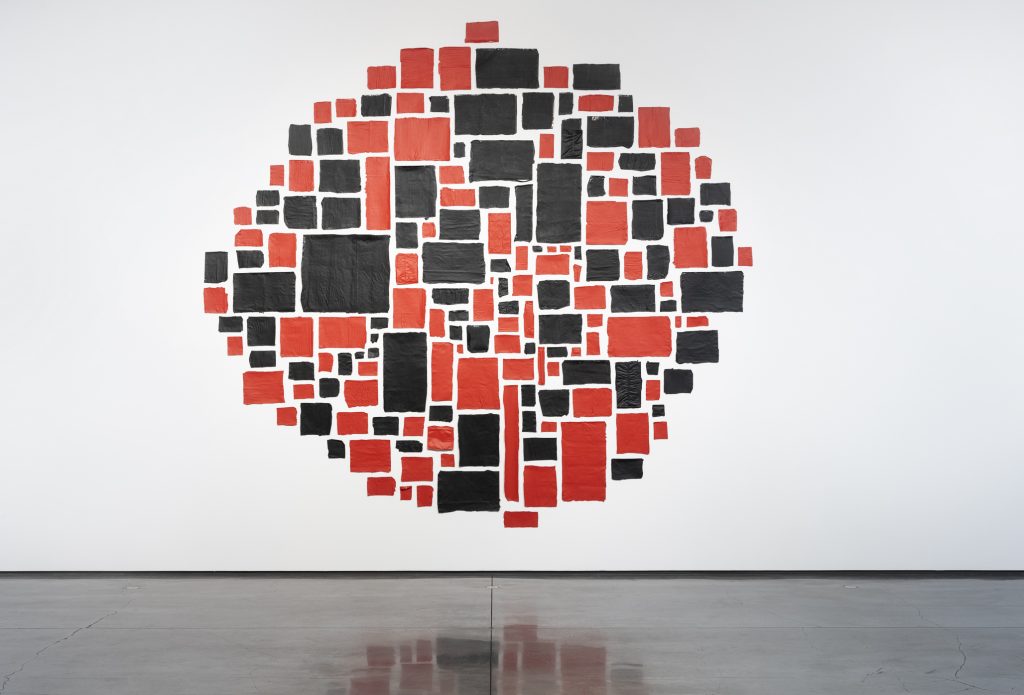
FUTURE
What surprises do you have for the future?
I am happy to tell you that we have just finished the editorial work on this book in order to publish the Spanish version of On the Way to Casa Lotus.
And we are very happy to be able to do it. Because we will have the book published in both languages and we hope to reach many more people and have a much larger audience.
Reading the Book

Lorena Junco’s narration is deeply honest and sincere. It is as if a friend is telling you about a painful yet hopeful episode. The main message is to Forgive, but Don’t Forget.
However, forgiveness is easy to contemplate, but hard to put into practice. Lorena gives us a powerful example that it can be achieved.
She hopes that her story can show the reader the way to Casa Lotus and bring something positive to the community with her message of forgiveness and compassion towards human beings.
She explained that Casa Lotus is that structure that you have to create or «curate», like in an art space or «curación» meaning «healing» in Spanish, inside of yourself to live a life with balance.
One of the aspects I enjoyed in this book is that Lorena Junco is an example of the wave of educated, sophisticated and Hispanic immigrant women who are having their own voices heard in the United States.
She highlights her experience with rich, small details that other authors sometimes miss. For example, having to fill up the gas tank yourself, when in Mexico, no one would ever let a woman do that, out of politeness.
Likewise, Lorena Junco presents an image of the strong cohesion of the Mexican family united in times of crisis, in which unconditional support is offered to overcome a terrible experience.
Book available on e-book @ amazon, and local stores such Hearth and Soul in Austin, Texas and in Strand Book Store in New York.
- Facebook: @juncomargain
- Instagram: @lorenajucomargain
- Twitter: @juncomargain
- https://lorenajuncomargain.com
By: Lilia Davis, Editor in Chief
Photos: Courtesy of Lorena Junco
